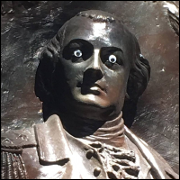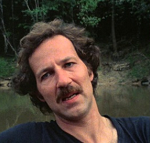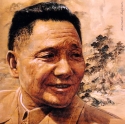|
GlyphGryph posted:Should we just have someone else take over the thread? We're so behind at this point that I'd be willing to bang out a few elections right quick. Wouldn't be nearly as good at them, but hey, we've still got a lot of history to go so... Quo's write-ups are main draw for me, though.
|
|
|
|

|
| # ? May 10, 2024 12:32 |
|
Lycus posted:Quo's write-ups are main draw for me, though. Same
|
|
|
|
cleveland rocks
|
|
|
|
Free QuoProQuid.
|
|
|
|
I've admittedly been distracted with other projects and real-world events and had to push this thread off to the side for a bit. I can't guarantee that this thread will get to 2000 but I'll give a warning when I'm done instead of disappearing into the ether. Harold Stassen posted:cleveland rocks it does. i'm hoping my hometown doesnt burn down
|
|
|
|
Well no matter how far you get this has been an amazing thread.
|
|
|
|
I recently wound up binging through those whole thread, I'm so glad it's apparently kicking off again! And looking at the thoroughly insane alternate timeline Goons have wrought.
|
|
|
|
Thank you for voting. After a tight three-way election, Benjamin Harrison has succeeded in reclaiming the White House for the Republican Party. Speaking to the country on its centennial election, Harrison has promised to return the values of its first president: His Elective Majesty President of the United States of America and Protector of their Liberties, John Adams. Harrison swears to eliminate corruption, protect American industry, and restore confidence in the country. When asked about Harrison's speech, the newly elected Vice-President Levi P. Morton reportedly said, “If he says so,” and “I guess.” After being asked about his role in Harrison's cabinet, officials report that he laughed and walked away. MOST POPULAR TICKET: Benjamin Harrison / Levi P. Morton (Republican) - 41.9% (31 votes) Alson Streeter / Charles E. Cunningham (Union Labor) - 31.1% (23 votes) Clinton B. Fisk / John A. Brooks (Prohibition) - 24.3% (18 votes) Grover Cleveland / Allen G. Thurman(Democratic) 2.7% (2 votes) TOTAL: 74 votes QuoProQuid has issued a correction as of 16:21 on Jul 24, 2016 |
|
|
|
ELECTION OF 1892 Click here to vote in the Election of 1892! Click here to vote in the Election of 1892!   Background: In 1888, Benjamin Harrison became the country’s centennial president. To commemorate the event, the President-elect recreated George Washington’s inauguration in New York City and presided over a three-day nationwide celebration. Harrison spoke broadly about the promise of the next century and the need to put country first. The country had suffered considerably from the Long Depression and Depression of 1882 and it would take resolve to move forward. When the celebrations died down, Harrison and his wife, Caroline, made their way to the White House. Immediately after assuming office, Benjamin Harrison started stepping on toes. Always distrustful of the Republican Party’s bosses, Harrison made efforts to exclude them from his administration. Blaine, a power unto himself and former nominee, found his nomination as Secretary of State repeated delayed. Though Harrison had avoided making deals during his campaign, his campaign had promised power and prestige to various Republicans in exchange for support. When these failed to happen, many thought Harrison was betraying them. These beliefs were further hardened by an apparent bribe from Harrison’s Postmaster-General, an allegation that Harrison denied. The Harrison presidency further soured due to its tone deaf response to economic concerns. In the wake of recent depressions, many Americans had called for expansive regulation and reform. Harrison, a long-time protectionist, responded by instituting the highest protective tariff in the country’s history through the McKinley Tariff Act of 1890. Tariff rates increased almost 50 percent in the space of a few months. The bill also gave the president enormous power in foreign trade, such as the ability to conduct trade conventions and negotiate agreements without congressional oversight, but workers saw the price of goods increase dramatically. Worse, the President convinced Congress to pass its first billion-dollar budget. While the budget included an expansion of veterans’ benefits and conservationism, it reinforced a belief that the President was spending excessively and interested only in wealthy party interests. Other campaign promises failed to make much impact. Harrison had promised to regulate and break-up the trusts and supporter the Sherman Antitrust Act to achieve that goal. Unfortunately, the bill’s language was too vague to enforce and its penalties too weak to deter any industrial giants. Harrison had promised protections for African Americans, but the Justice Department was slow to order prosecutions for voter intimidation and juries across the South refused to convict possible offenders. A bill meant to address these issues, the Lodge Bill, failed to pass the Senate (partly due to sabotage from his Vice-President). Harrison had promised to bridge hard and soft money supporters but his compromise, which allowed for free coinage of silver but not at a fixed ratio, inflamed both factions against him. Harrison’s attempts to formalize civil service reform caused several appointees to actively sabotage their administrations. Harrison was extremely successful in foreign affairs, successfully negotiating with Germany and the United Kingdom to allow for an American protectorate in the Samoan Islands and stopping British over-harvesting of seals, but few people noticed those changes. The First International Conference of American States, which had its first meeting in Washington, D.C., went unnoticed by most of the country as did Harrison’s attempts to build a canal in Nicaragua. Many joked that the only successful person in Harrison’s administration was his wife, First Lady Caroline. When she had arrived in the White House, she had found it cramped, falling apart, and infested with rodents. Under her supervision, the White House was extensively remodeled and installed with the latest technologies. Against this backdrop, Harrison became one of the first sitting presidents to suffer through a contested convention. James Blaine organized a “dump-Harrison” movement that only failed when the movement was unable to find an alternative candidate. Worse, the Democrats had decided to nominate the increasingly popular President Grover Cleveland. The Republicans were also forced to deal with almost unprecedented support for a third party. Made up of reformers and Midwestern farmers, the People’s Party entered the political fray with an aggressively populist campaign. Its nominee promised an end to Harrison’s half-measures and announced his intent to actively campaign. Breaking with precedent, Weaver announced he would “visit every state in the Union and carry the banner of the people into the enemy’s camp.” Both Harrison and Cleveland have been trying their best to ignore the populists. As a final twist of the knife, Harrison’s beloved wife, Caroline, died two weeks before the general election. Caroline had always had poor health but had accompanied her husband on all his travels, often serving as his sole ally. During a visit to California, Caroline caught tuberculosis. She spent six months as an invalid before finally succumbing to illness. REPUBLICAN PARTY NOMINEES:  Presidential Nominee: Benjamin Harrison
 Vice-Presidential Nominee: Whitelaw Reid
DEMOCRATIC PARTY NOMINEES:  Presidential Nominee: Grover Cleveland
 Vice-Presidential Nominee: Adlai Stevenson
PEOPLE’S PARTY NOMINEES:  Presidential Nominee: James B. Weaver
 Vice-Presidential Nominee: James Gavin Field
PROHIBITION PARTY NOMINEES:  Presidential Nominee: John Bidwell
 Vice-Presidential Nominee: James Cranfield
SOCIALIST LABOR PARTY NOMINEES:  Presidential Nominee: Simon Wing
 Vice-Presidential Nominee: Charles Matchett
QuoProQuid has issued a correction as of 16:20 on Jul 24, 2016 |
|
|
|
looks like we didn't need to wait for debs after all
|
|
|
|
Well if you do have to give this thread up, it'll be fitting if that coincides with full communism in America and the end of history.
|
|
|
|
An ad published by the Socialist Labor Party in 1891. It is entitled History of the Wheel and Alliance and the Impending Revolution: quote:Laboring men of America! The voice of Patrick Henry and the fathers of American Independence rings don through the corridors of time and tells you to strike. Not with glittering muskets, flaming sword, and deadly cannon; but with the silent, potent, and all-powerful ballot, the only vestige of liberty left. Strike from yourselves the shackles of party slavery, and exercise independent manhood.
|
|
|
|
Only one, true, clear choice. Let Marxism-Wingism be born! 
|
|
|
|
it's time
|
|
|
|
Under wise goon guidance, America will be running comintern by the turn of the century.
|
|
|
|
Interested in hearing the Honorable Whitelaw Reid's opinions on the state of video games journalism.
|
|
|
|
"Another election filled with bad candidates who all have something that makes them unelecta.................................... oh."sniper4625 posted:Only one, true, clear choice.
|
|
|
|
"Thank you for voting. The Congress will certify the vote on 11 June 2016." So the result has already been determined, has it? Not surprised Congress would conspire to keep the proletariat down!
|
|
|
|
Is this race going to mark the biggest difference between how well a candidate does with the Goon Vote and how well they did with the actual, historical vote?
|
|
|
|
The legal successor of Simon Wing's party is a website last updated in 2011 and designed a decade before that http://www.slp.org/index.html Of course, it has been in decline ever since the filthy splitter Debs peeled off from DeLeonism.
|
|
|
|
If Matchett wishes to abolish the positions of President and Vice-President, I wonder what he will do when given the job of VP. We should give it to him just to see.
|
|
|
|
Empress Theonora posted:"Another election filled with bad candidates who all have something that makes them unelecta.................................... oh." Well then, Full Communism Now it is.
|
|
|
|
I thought I would finally be able to vote for a candidate without holding my nose, but Wing's support for referenda on major decisions is a major negative
|
|
|
|
Finally, full Communism.
|
|
|
|
Hey, literally today I mentioned in the GOP thread that I missed this thread and here it is. Voting for a glorious socialist republic. Also what's the deal with the Preseident and VP candidate of the People's Party? It doesn't seem like they have anything in common other than hating foreigners.
|
|
|
|
Hatred of foreigners is a cornerstone of populism.
|
|
|
|
Badger of Basra posted:I thought I would finally be able to vote for a candidate without holding my nose, but Wing's support for referenda on major decisions is a major negative It hasn't really been tried yet, so presumably it'll be fixed after it burns down the country. 
|
|
|
|
SoggyBobcat posted:"Thank you for voting. The Congress will certify the vote on 11 June 2016."  GreyjoyBastard posted:It hasn't really been tried yet, so presumably it'll be fixed after it burns down the country. Southxit UrbicaMortis posted:Also what's the deal with the Preseident and VP candidate of the People's Party? It doesn't seem like they have anything in common other than hating foreigners. Weaver and Field aren't that different from one another. Field has a reputation as a defender of the poor. He helped institute Virginia's first public school system, pushed for public works projects to keep people employed, and supports the nationalization of the railroads. The biggest difference is their attitudes towards race. Field is a segregationist and Weaver opposed slavery but is pretty ambivalent towards actual racial progress.
|
|
|
|
I'm glad to see the thread return! This will disappoint Mr. Nixon, though, who was planning to take over if you were Toxx'd. He planned to play the dark side of the electorate like the black keys on a piano Still, it's not his first rodeo in that respect:  
|
|
|
|
Let's show Paris how a real commune handles
|
|
|
|
I'm leaning towards the People's Party. I realise that people here desperately want Full Communism Now, but I personally think that the SLP are going a bit too far.
|
|
|
|
Yvonmukluk posted:I'm leaning towards the People's Party. I realise that people here desperately want Full Communism Now, but I personally think that the SLP are going a bit too far. But if they go too far we can just have referendum that reign them back in. It's the perfect plan!
|
|
|
|
NumberLast posted:But if they go too far we can just have referendum that reign them back in. It's the perfect plan!
|
|
|
|
Yvonmukluk posted:The real issue is that the SLP would like to abolish the offices of president and Vice President. So therefore we can't have any more elections! A great way for the thread to end.
|
|
|
|
karmicknight posted:A great way for the thread to end. In the world where goons were the electorate, elections ended due to the fourth civil war.
|
|
|
|
...I guess Weaver seems like the best candidate? Up until that seizing immigrant property thing. I guess Harrison's the best economically as well as for immigrants, and then Grover Cleveland is running on a dumb platform of not wanting to get much done. Then there's the prohibition candidate, who has some neat ideas but they're clumsy and they're paired with even more anti-immigrant sentiment. I like the classic obscure VP though. And then there's this crazy idiot playing it up for the weird goon vote by making insane claims of what he plans to do. "Abolish the positions of president and VP and replace congress with a 'worker's council'?" What does that even mean?! Get out of here ya wingnut. .
|
|
|
|
gently caress the commies and the populists. Harrison! *slams down telegraph receiver*
|
|
|
|
I've been out and about for a while not turned to matters of the Goon Council, but I have returned, gentlemen and ladies hiding behind beards. Weaver is a throwback to the Jacksonian "gently caress the elites, but gently caress non-white people too". Cleveland's promise of keeping back is not the way to go, we must head to the future! (And hey, look, Adlai Stevenson's horrible racist grandfather!) Prohibition party continues to be out in the weeds, taking aim at whichever windmills they think are giants this week. Harrison seems pretty stable and reasonable, would be better than the rest. Probably the best lesser evil choice. But, I've been gone for a long time, reading up on socialism, and it must be the way that we move forward. Wing's ideas about government organization are radical, but we must reorganize on much more democratic terms! The US is on its way up as a large power, and it's a great area for us to experiment with Marx's ideas without causing fear among the stodgy establishment in other countries like the UK. (Like where else would the ideas take hold? Some backwater like Russia? Hah!) Onward, comrades! e: OK, Adlai Stevenson's more racist grandfather. foobardog has issued a correction as of 22:26 on Jul 25, 2016 |
|
|
|
foobardog posted:Prohibition party continues to be out in the weeds, taking aim at whichever windmills they think are giants this week. H excuse me, but abolishing trial by jury and replacing it with technocratic tribunals is a VERY important issue that deserves everyone's attention
|
|
|
|

|
| # ? May 10, 2024 12:32 |
|
Nebakenezzer posted:In the world where goons were the electorate, elections ended due to the fourth civil war. Come on, now, that's not true at all. Elections ended when the nation immediately crumbled when not-George-Washington was elected.
|
|
|
































